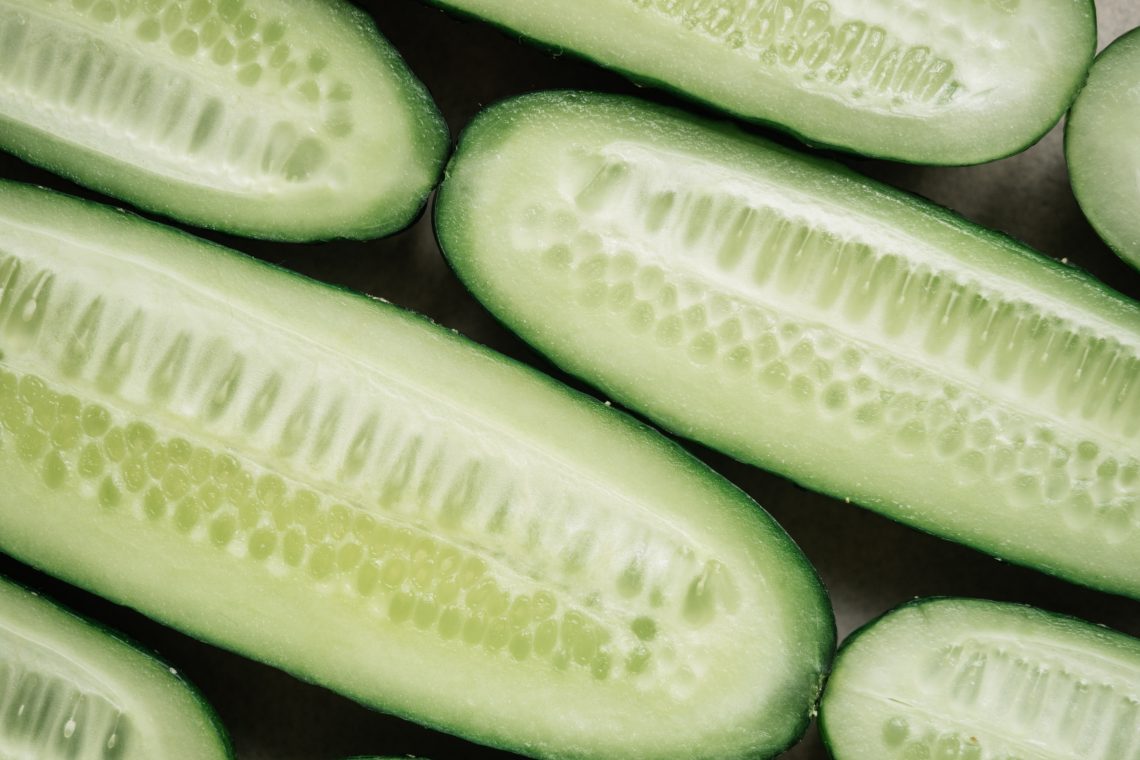Cucumbers are very famous lean, green, and long garden vegetables. Scientifically, cucumbers are fruits from the same family as pumpkins and watermelons, but most people consider them as vegetables. Cucumbers natively grow in India, can be slightly bitter and have a little melon-like taste. There are usually two main types of cucumbers, i.e., slicing cucumbers and pickling cucumbers. Pickling cucumbers are much smaller in size and can be 3-7 inches long. The main use of pickling cucumbers is to make pickles. The distinctive characteristic of pickling cucumbers is that they have spines or bumps on their skin. While the slicing cucumbers are often present in the salads and are very fresh to eat. Slicing cucumbers are free of any bumps on their skin and have a milder taste.
Speaking of the nutritional quality of cucumbers, one serving of cucumber which is equal to half a cup gives 8 calories. There are small amounts of vitamin A and vitamin K in cucumbers and 95% of cucumbers consists of water. In addition to essential nutrients, cucumbers also have phytonutrients known as lignans. One medium-sized raw cucumber consists of 6 grams of carbohydrates, 3 grams of proteins, 0 grams of fat, 2 grams of fiber and 30 calories. As we can see that cucumbers have a beautiful balance of macronutrients and does not contain any fat which is heart-healthy too. Considering the micronutrients, cucumbers have a decent amount of essential vitamins and nutrients in them.
Half cup un-peeled raw cucumbers provide 10% of the recommended daily value (DV) of vitamin C and 57% of the recommended daily value (DV) of vitamin K, thus giving ample amount of vitamins in such a small serving. While the same serving size of cucumbers gives 9% of the DV of magnesium, 9% of the DV of manganese and 12% of the DV of potassium. The significant balance of vitamins, minerals and antioxidants coming from phytonutrients makes cucumbers a highly nutritious vegetable to eat daily. Moreover, the excess amount of water present in cucumbers also maintains the hydration levels in the body and avoids the occurrence of constipation.
Cucumbers are filled with numerous healthy ingredients that provide nutritional value to the body. Some of the common ones include;
Highly nutritious
Cucumbers are one of the best sources of phytonutrients such as triterpene, flavonoids, and lignans, which have anti-cancer, anti-inflammatory, and antioxidant benefits. The phytonutrients are plant chemicals that have disease preventive or protective properties. The seeds and peel are the most nutrient-dense portions of the cucumber. Raw cucumbers contain beta-carotene and fiber. Beta-carotene is an antioxidant substance that helps with skin, immunity, prevention of cancer and promotes eye health. According to a study by Pakistan Journal of Nutrition, the seeds of cucumber are a good source of calcium and minerals.
As cucumbers are naturally low in sodium, calories, fat, carbohydrates, cholesterol, and fat, they are best-suited for promoting health and giving essential nutrients to the body. You only get 15 calories by eating a cup of peeled cucumbers and this one cup will provide you with 3 percent of your daily fiber, 4 percent of your daily vitamin C, and about 4 percent of your daily potassium. Moreover, cucumbers also give small amounts of magnesium, potassium, vitamin C, vitamin A, and manganese. You must include this highly nutritious vegetable in your daily food as a salad or might be as a side dish.





